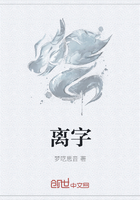Suspicion and torture are the approved methods of getting at the truth, here. It was necessary for me, therefore, to keep a watch over my deportment, lest the enemy should get the better of me.
But with all our caution and studied reserve, I am not sure that Mr. Freeland did not suspect that all was not right with us. It _did_ seem that he watched us more narrowly, after the plan of escape had been conceived and discussed amongst us. Men seldom see themselves as others see them; and while, to ourselves, everything connected with our contemplated escape appeared concealed, Mr. Freeland may have, with the peculiar prescience of a slaveholder, mastered the huge thought which was disturbing our peace in slavery.
I am the more inclined to think that he suspected us, because, prudent as we were, as I now look back, I can see that we did many silly things, very well calculated to awaken suspicion. We were, <215 HYMNS WITH A DOUBLE MEANING>at times, remarkably buoyant, singing hymns and ****** joyous exclamations, almost as triumphant in their tone as if we reached a land of ******* and safety. A keen observer might have detected in our repeated singing of_O Canaan, sweet Canaan, I am bound for the land of Canaan,_something more than a hope of reaching heaven. We meant to reach the _north_--and the north was our Canaan.
_I thought I heard them say, There were lions in the way, I don't expect to Star Much longer here.
Run to Jesus--shun the danger--
I don't expect to stay Much longer here_.
was a favorite air, and had a double meaning. In the lips of some, it meant the expectation of a speedy summons to a world of spirits; but, in the lips of _our_ company, it simply meant, a speedy pilgrimage toward a free state, and deliverance from all the evils and dangers of slavery.
I had succeeded in winning to my (what slaveholders would call wicked) scheme, a company of five young men, the very flower of the neighborhood, each one of whom would have commanded one thousand dollars in the home market. At New Orleans, they would have brought fifteen hundred dollars a piece, and, perhaps, more.
The names of our party were as follows: Henry Harris; John Harris, brother to Henry; Sandy Jenkins, of root memory; Charles Roberts, and Henry Bailey. I was the youngest, but one, of the party. I had, however, the advantage of them all, in experience, and in a knowledge of letters. This gave me great influence over them. Perhaps not one of them, left to himself, would have dreamed of escape as a possible thing. Not one of them was self-moved in the matter. They all wanted to be free; but the serious thought of running away, had not entered into <216>their minds, until I won them to the undertaking. They all were tolerably well off--for slaves--and had dim hopes of being set free, some day, by their masters. If any one is to blame for disturbing the quiet of the slaves and slave-masters of the neighborhood of St.
Michael's, _I am the man_. I claim to be the instigator of the high crime (as the slaveholders regard it) and I kept life in it, until life could be kept in it no longer.
Pending the time of our contemplated departure out of our Egypt, we met often by night, and on every Sunday. At these meetings we talked the matter over; told our hopes and fears, and the difficulties discovered or imagined; and, like men of sense, we counted the cost of the enterprise to which we were committing ourselves.
These meetings must have resembled, on a small scale, the meetings of revolutionary conspirators, in their primary condition. We were plotting against our (so called) lawful rulers; with this difference that we sought our own good, and not the harm of our enemies. We did not seek to overthrow them, but to escape from them. As for Mr. Freeland, we all liked him, and would have gladly remained with him, _as freeman_. LIBERTY was our aim; and we had now come to think that we had a right to liberty, against every obstacle even against the lives of our enslavers.
We had several words, expressive of things, important to us, which we understood, but which, even if distinctly heard by an outsider, would convey no certain meaning. I have reasons for suppressing these _pass-words_, which the reader will easily divine. I hated the secrecy; but where slavery is powerful, and liberty is weak, the latter is driven to concealment or to destruction.
The prospect was not always a bright one. At times, we were almost tempted to abandon the enterprise, and to get back to that comparative peace of mind, which even a man under the gallows might feel, when all hope of escape had vanished. Quiet bondage was felt to be better than the doubts, fears and uncertainties, which now so sadly perplexed and disturbed us.
<217 IGNORANCE OF GEOGRAPHY>
The infirmities of humanity, generally, were represented in our little band. We were confident, bold and determined, at times;and, again, doubting, timid and wavering; whistling, like the boy in the graveyard, to keep away the spirits.
To look at the map, and observe the proximity of Eastern Shore, Maryland, to Delaware and Pennsylvania, it may seem to the reader quite absurd, to regard the proposed escape as a formidable undertaking. But to _understand_, some one has said a man must _stand under_. The real distance was great enough, but the imagined distance was, to our ignorance, even greater. Every slaveholder seeks to impress his slave with a belief in the boundlessness of slave territory, and of his own almost illimitable power. We all had vague and indistinct notions of the geography of the country.














